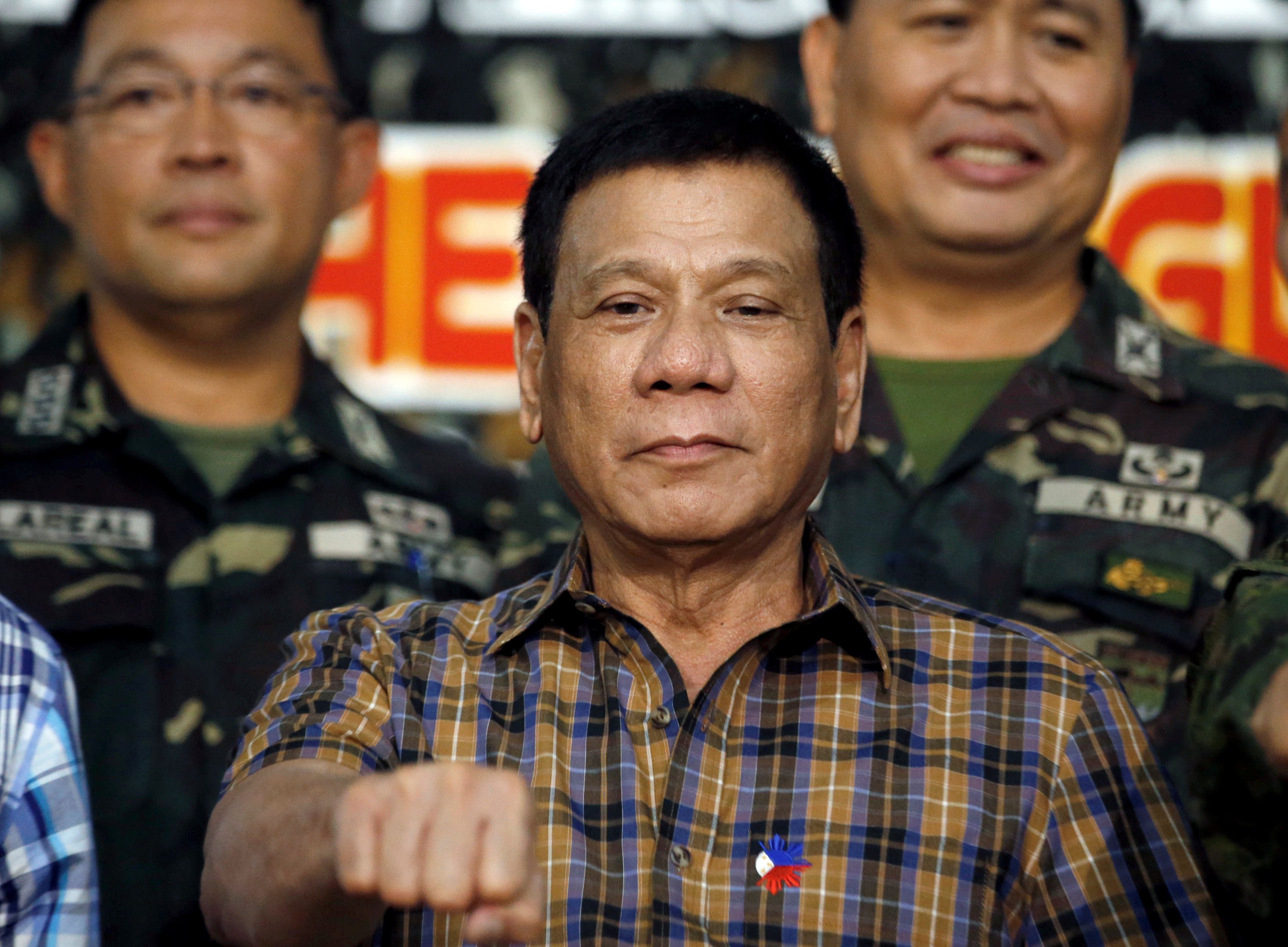You'd think that saying God is stupid and calling the Pope the son of a whore would be political suicide in a country as deeply Roman Catholic as the Philippines. You might also think it impolitic to joke about gang rape, compare yourself to Hitler, order your troops to shoot female rebels in their genitals, or unleash a war on drugs in which police and allied vigilantes have killed as many as 20,000 people, most without even a whiff of due process.
But if you thought that, odds are you aren't from the Philippines, where nearly 80 percent of the population still approves of President Rodrigo Duterte, who has done all of the above.
Elected in 2016 in a landslide upset, the former provincial mayor styles himself effectively as a man of common tastes and common sense, willing to dispense with liberal niceties (in both speech and policy) in order to get things done for people long neglected by the country's elites.
Critics point out that his drug war has normalized vigilantism and extrajudicial violence. His attacks on the press and political opponents, they say, are eroding a democracy that Filipinos fought hard to reclaim in 1986 from the lavish dictatorship of Ferdinand and Imelda Marcos. (For more on this, see our interview with Maria Ressa, who heads the highly respected Philippine online news organization Rappler.)
But his supporters point to his record on infrastructure, his pitiless approach to crushing the drug trade and crime, and his common touch—he sticks up for the poor, in particular for the millions of Filipinos who work abroad. His broadsides against the US, and his closer alignment with China have also struck a chord in a country where the long history of US colonialism and military presence is still viewed with some resentment.
That broad public support is likely to carry Mr. Duterte's allies to a sweeping victory in national mid-term elections that were held yesterday. In addition to picking 18,000 local government posts, voters across the country's 5,000 islands chose half of the deputies in the Senate, which is now likely to come under his control.
Until now, that body has mounted some opposition to Duterte, checking his worst instincts – but after the vote count is in, it likely won't serve that function any more. At the top of Mr. Duterte's agenda is a controversial constitutional reform that would decentralize power, while also potentially opening the way for him to get around term limits that would otherwise require him to leave office in 2022. (Rumors also abound that he's grooming his daughter, currently mayor of Davao City, to succeed him.)
Upshot: Despite his disregard for human rights and his questionable commitment to the most basic democratic norms, "Duterte Harry" enjoys the strong backing of most Filipinos for the same reason he's often criticized internationally: his ruthless effectiveness. After today, he will be in a position of even greater power still.